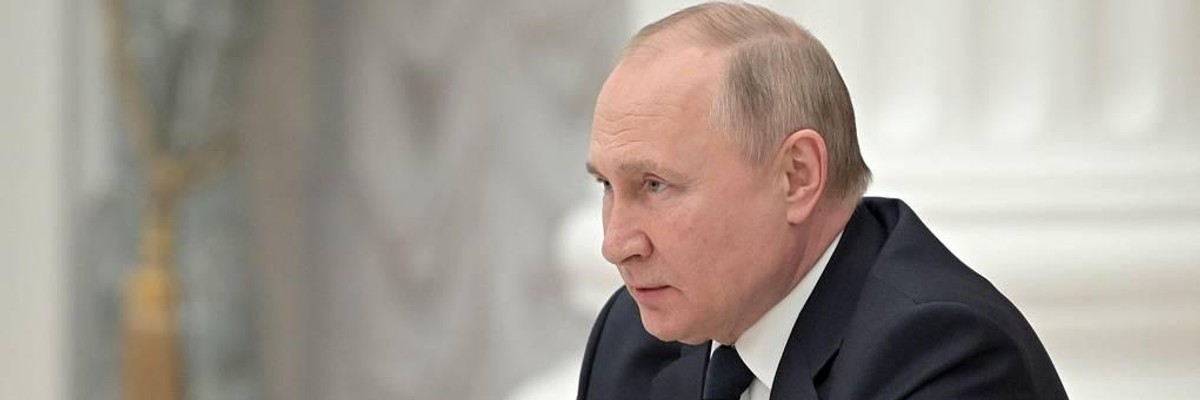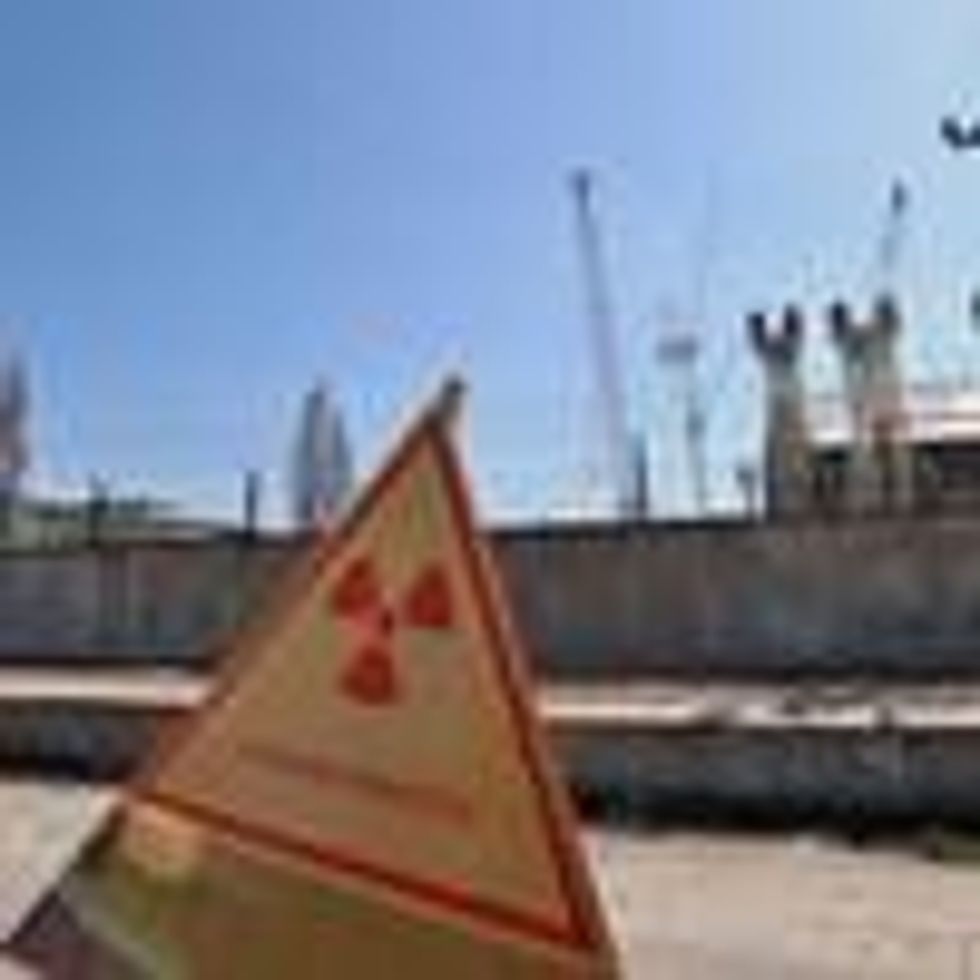Global disarmament advocates warned Thursday that the nightmare scenario they've been working for years to prevent--a catastrophic nuclear war--became more likely this week after Russian President Vladimir Putin launched a massive assault on Ukraine and threatened any nation that attempts to impede the invasion with consequences "never seen" in history.
"A single tactical nuclear weapon could kill hundreds of thousands in a large city instantly and injure many, many more."
Observers had little doubt that Putin was referencing the possibility of a nuclear attack, particularly given his mention just minutes earlier of the fact that Russia is "one of the most powerful nuclear states" in the world.
Putin's speech and deteriorating relations between the United States and Russia--which together possess more than 90% of the planet's nuclear arsenal, with ready-to-launch warheads positioned across Europe--have left anti-nuke campaigners increasingly fearful that the world is on the brink of disaster.
Nuclear weapons have only been used twice in the history of global military conflict, when the U.S. dropped a pair of atomic bombs on Japan during World War II.
World leaders, groups argue, must move decisively to prevent the future use of nukes, starting by bringing Russia's attack on Ukraine to an immediate end.
"This illegal and premeditated war of aggression by the Russian government puts Ukrainian civilians in harm's way and drastically increases the risk of escalation to nuclear conflict, with catastrophic global consequences for us all," Derek Johnson, managing partner of Global Zero, said in a statement Thursday, cautioning that the "world is in a perilous moment."
"The greatest risk of nuclear use today comes from unplanned or unexpected escalation of a conventional conflict," Johnson added. "With NATO and Russian forces operating in close proximity, the threat of one mistake, misinterpretation, or miscalculation during a close encounter or military exercise increases the risk of escalation to direct conflict and potential nuclear use. Russia has an obligation to de-escalate, withdraw its forces from Ukraine, and refrain from further nuclear threats."
Physicians for Social Responsibility (PSR), an anti-nuclear proliferation group, similarly warned Thursday that Russia's ongoing war on Ukraine and growing tensions with the West heighten the risk of a grave "humanitarian catastrophe."
"Military tension between nuclear-armed adversaries increases the ever-present possibility of nuclear weapons coming into play. President Putin himself alluded to this possibility," the organization said. "While President Putin alone bears the responsibility for choosing to attack Ukraine, leaders of all nuclear-armed states must be held collectively accountable for keeping the world safe from the dangers of nuclear weapons."
"Any use of nuclear weapons--whether purposeful or through accident or miscalculation--would be a humanitarian catastrophe," PSR added. "All parties to this conflict should cooperate to end hostilities and resolve the underlying safety and security issues on all sides. Furthermore, to eliminate the danger of nuclear weapons, all nuclear-armed countries should negotiate for total elimination of their nuclear arsenals. Until then, we are living on borrowed time."
Related Content
US and Russian Physicians Warn War in Ukraine Risks Global Nuclear 'Catastrophe'
Jake Johnson
While Ukraine does not possess nuclear weapons, it does maintain more than a dozen nuclear power reactors that could be damaged in an attack, potentially spewing radioactive debris. On Thursday, Russian forces seized control of Ukraine's defunct Chernobyl power plant, the site of the deadly and devastating 1986 nuclear disaster.
In a statement Friday, the International Atomic Energy Agency said it is "following the situation in Ukraine with grave concern and is appealing for maximum restraint to avoid any action that may put the country's nuclear facilities at risk."
Dr. Carlos Umana, co-president of International Physicians for the Prevention of Nuclear War, said in a video message released Friday that "if any of the 15 nuclear reactors in Ukraine are damaged, it could cause a radioactive disaster greater than that of Chernobyl or Fukushima."
"However, the greatest risk in this conflict is nuclear weapons," Umana continued. "Nuclear-weapon states have many nuclear weapons deployed throughout Europe. A single tactical nuclear weapon could kill hundreds of thousands in a large city instantly and injure many, many more."
"If a nuclear war breaks out," he added, "many weapons would be used over several cities, causing tens of millions of instant deaths, hundreds of millions of injur[ies], and a sudden and severe global climate change that would end our civilization--and possibly even our species."


